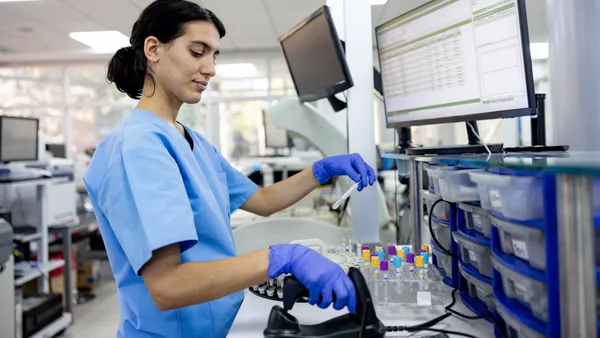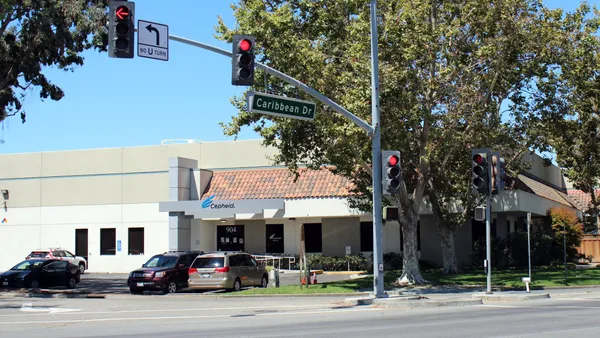Dive Brief:
- Delfi Diagnostics has begun commercial sales of a blood test designed to detect lung cancer by analyzing cell-free DNA (cfDNA) fragments.
- The test, FirstLook Lung, applies machine learning to whole-genome sequencing data to identify cfDNA patterns associated with lung cancer. The test looks at how cfDNA breaks apart, rather than focusing on mutations and methylation like other liquid biopsies.
- Delfi has generated evidence that the approach is particularly suited to lung cancer, with an early assessment linking the technology to 100% sensitivity at 98% specificity.
Dive Insight:
Victor Velculescu, co-director of cancer genetics and epigenetics at Johns Hopkins University, founded Delfi and serves as its CEO. Peter Bach, formerly a physician at Memorial Sloan-Kettering Cancer Center, occupies the chief medical officer role. Together, the researchers and their colleagues have built on a 2019 paper in Nature Research that provided early validation of using cfDNA fragmentation to detect cancer.
At the time of the paper, researchers had identified analysis of the size of cfDNA fragments as a potential way to overcome the limitations of tests focused on chromosomal abnormalities, which are rare, but analyses of fragment size had been contradictory. The 2019 paper, which Velculescu co-authored, found genome-wide cfDNA fragmentation profiles are different in patients with cancer and healthy individuals.
That finding informed the development of a test. Applied to different tumor types, the test achieved sensitivities ranging from 57% in breast cancer to 100% in lung cancer, at 98% specificity. The test had a 68% sensitivity in all cancers at stage I. Detecting tumors at stage I is linked to better health outcomes. The test accurately identified the lung as one of the two most likely sites of the tumor in 77% of cases.
Building on the paper, Delfi has developed FirstLook Lung, a lung cancer test that it is making available through some health systems in the U.S. starting this fall. The initial commercial introductions are part of an early experience program.
The test provides one of two results: elevated and not elevated. An elevated result suggests an increased likelihood that a low-dose CT scan will detect a lung tumor. The test has a 99.7% negative predictive value. Delfi’s statement did not provide the positive predictive value.
Correction: In an earlier version of this article, Peter Bach was misidentified. He was a physician at Memorial Sloan-Kettering Cancer Center before joining Delfi.










